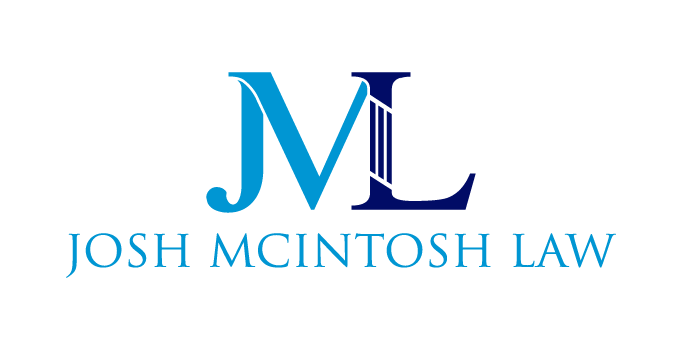Want an attorney who will fight for you?
contact Josh McIntosh Law, former felony prosecutors, today for a free consultation.
If you have been accused of a serious felony or misdemeanor crime, whether in state or federal court, call Josh McIntosh Law. Our defense attorneys are former felony prosecutors and are able to handle any and all charges a client may face.
Remember, when it comes to hiring a lawyer, the earlier the better!
Contact Josh McIntosh Law today via email or by calling 859-217-4467.
FINANCING AVAILABLE
For some criminal and DUI/OVI cases, we offer financing to help you with the costs of attorney fees.
FREE CONSULTATION
We offer free consultations for most types of cases.
CASES WE DEFEND
At Josh McIntosh Law we defend every kind of criminal charge from felonies to misdemeanors and state to federal cases. Click here to see all of the cases we defend as well as learn about each type of case including the penalties and how we can help.
STeps in the criminal justice system
If you have been charged with a felony crime in Kentucky, below are the steps that your case will follow as it progresses through the criminal justice system.
Report
The crime is reported. This step occurs when the police are called to the scene of a crime or an individual contacts the police to make a report.
Investigation
After the police are notified of a crime, it is investigated. The victim and all relevant witnesses are questioned.
Complaint
A formal complaint is filed. This can be done either by the police or victim. An affidavit is then filed in District Court and either a warrant is issued for arrest or a summons to court is issued.
Arraignment
Once the affidavit is filed and you are arrested, you will then appear before District Court for arraignment within 48 hours. This appearance is for the purpose of setting a bond, confirming legal counsel, and setting a date for the Preliminary Hearing.
Preliminary Hearing
This is when the Judge must find that there is probable cause to believe a that you have committed a crime. At this point, if there is sufficient evidence, the case is bound over to the Grand Jury.
Grand Jury
Once the case is bound over to the Grand Jury, the prosecutor assigned to the case will continue to prepare and investigate it. The case is then scheduled for presentment to the Grand Jury, which is comprised of registered voters of the county of jurisdiction. During the hearing, only the Grand Jurors, prosecutor, and one witness (typically the police officer or detective assigned to the case) at a time are present in the room. There is no cross-examination. After the testimony is heard, the Grand Jury votes to determine if there is sufficient evidence (i.e., probable cause) to issue an indictment. If you are indicted, the case proceeds through the system. If probable cause is not found, the Grand Jury ignores the case (called a No True Bill), there are no charges, and the case is over. However, a case may be represented to the Grand Jury in light of new evidence.
Arraignment
After the indictment is issued there is an arraignment in the Circuit Court. At this hearing, you are formally told of the charges you are facing and you plead not guilty. If you have hired an attorney, he will then argue the issue of bond to the judge. Depending on the Judge, either a Status Hearing, Pre-trial Conference (PTC), or Trial date will be set.
pretrial
conference
This is when the prosecutor, your defense attorney, and the Judge discuss the case and how it may be resolved. You are usually present at this hearing. Depending on the case, there can be a number of these hearings prior to a trial.
Change of Plea
After you and your attorney have discussed the case and talked to the prosecutor, you may decide it is better to accept a plea bargain rather than proceed to trial. If there is an alleged victim in the case, the prosecutor usually discusses the plea negotiations with the victim or the victim's family prior to making any final agreements with your attorney. If an agreement is worked out, the case is scheduled for a Change of Plea, where you will change your plea from "not guilty" to "guilty." If there is no plea the case will proceed to trial.
Trial
At the trial, the prosecutor presents the case for the Commonwealth of Kentucky and your attorney will present the case on your behalf. The case may be tried before the Judge (a bench trial) or a twelve-person jury may decide the case (a jury trial). In order for you to be convicted, the prosecutor must convince the trier of fact of your guilt beyond a reasonable doubt. The victim, as well as the witnesses (including police officers and yourself if you choose to testify) will be subject to cross-examination by the opposing side. The trial date may be continued as long as the continuances are approved by the Judge.
Sentencing
If you are found guilty after a trial verdict or due to a guilty plea, the Judge will then set a sentencing date. This is to allow time prior to sentencing for the Probation and Parole Department to conduct a "pre-sentence investigation" (PSI). The PSI reports your history, your potential for rehabilitation, and make recommendations to the Judge. If there is a victim, he/she may complete a victim impact statement and in some cases, the Judge will let the victim make a verbal statement. The sentence must be within the limits set by the legislature for the particular crime.
Appeal
If you are convicted at trial, you may appeal the case within 30 days. An appeal involves an alleged error by the trial court during the criminal trial. The Court of Appeals does not hear testimony; it's decision is based solely on the record of the trial court.
REMEMBER, WHEN IT COMES TO HIRING A LAWYER, THE EARLIER THE BETTER!
LET US fight for you.
Call (859) 217-4467 or complete the below form for a FREE consultation.

